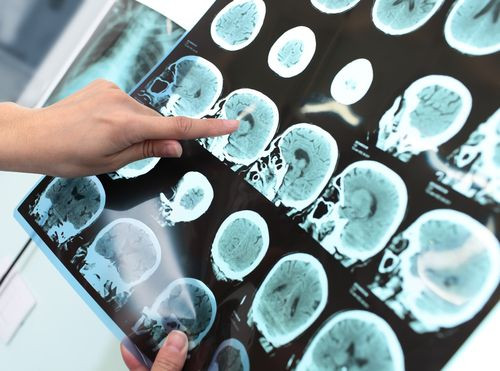If Blocked Endocannabinoids Trigger Dementia Symptoms, Could Cannabis Prevent Alzheimer’s?

A new study from Stanford University's School of Medicine suggests that beta-amyloid, which forms the hallmark clumps choking the brains of people with Alzheimer’s, may block the beneficial action of endocannabinoids in the brain. These chemical compounds activate, much like marijuana and hashish, the cannabinoid receptors which are involved in mood, pain-sensation, appetite, and memory. Because of the similarities between the two, it only makes sense that smoking pot might be able to reverse beta-amyloid's negative effects on endocannabinoids and go on to prevent Alzheimer’s, right?
Wrong, wrong, wrong. "Endocannabinoids in the brain are very transient and act only when important inputs come in,” explained Dr. Daniel Madison, who is an associate professor of molecular and cellular physiology, in a press release. "Exposure to marijuana over minutes or hours is different: More like enhancing everything indiscriminately, so you lose the filtering effect. It's like listening to five radio stations at once."
Endocannabinoids vs. Cannabis
This is the brain science underpinning what he says: Pyramidal nerve cells play a crucial role in processing information by performing the work of quality control in your brain and within your endocannabinoid system. Essentially, they weed out (excuse the pun) all that is worthy of remembering from all that is forgettable, and they do so by the frequency at which they fire. Though these brain cells constantly receive signals from upstream nerve cells, rarely will they pass along a signal to downstream nerve cells. In fact, it is only when the news coming from these other cells is significant or unique that pyramidal cells will squirt out their special chemical — endocannabinoids — which bind to receptors on interneurons and temporarily suppress them, thus allowing impulses to flow along the chain of pyramidal cells and drive that information home.
It is key, then, to your ability to learn and remember that these short-acting and precisely-timed endocannabinoid bursts fire only when a signal is truly worthy of attention. And this is vastly different, Madison said, from smoking marijuana or ingesting its active chemical, tetrahydrocannabinol (THC). Flooding the brain with external cannabinoids reduces the number of endocannabinoid receptors, which ultimately impedes their ability to open the gates of learning and memory.
Early Stages of Dementia
When memory is just beginning to fade, in the earliest stages of Alzheimer’s, what exactly is happening within the endocannabinoid system? To answer this, Madison and his colleagues analyzed beta-amyloid's effects on a brain structure shaped like a sea horse, and known as the hippocampus. "The hippocampus tells us where we are in space at any given time," explained Madison, the study's senior author. "It also processes new experiences so that our memories of them can be stored in other parts of the brain. It's the filing secretary, not the filing cabinet."
Importantly, the hippocampus is also known as the first area of the brain damaged by the signature clumps forming in the brains of Alzheimer’s patients. For this reason, Madison and his associates investigated pyramidal cells, a key circuit within the hippocampus. Experimenting on brain slices from rats, they investigated how this circuit of cells reacted to small amounts of beta-amyloid, which is produced throughout the body, but continues to puzzle scientists, who haven't been able to fully understand its usual physiological functions.
What did they observe? Madison's group was surprised to see that in small, normal concentrations, beta-amyloid tamps down on the pyramidal nerve cells and blocks them from transmitting endocannabinoids. In other words, beta-amyloid appears to prevent these cells from passing along important information to other brain cells down the line. Going forward, the research team hopes to discover the molecular details of this interaction, and eventually isolate an appropriate target for pharmacologists. A new drug aimed at the right bulls-eye could very well stave off memory loss and learning deficiencies in Alzheimer's patients, and thus improve their lives.
Source: Madison D, Orr A, Hanson J, et al. b-Amyloid Inhibits E-S Potentiation through Suppression of Cannabinoid Receptor1-Dependent Synaptic Disinhibition. Neuron. 2014.
Published by Medicaldaily.com



























